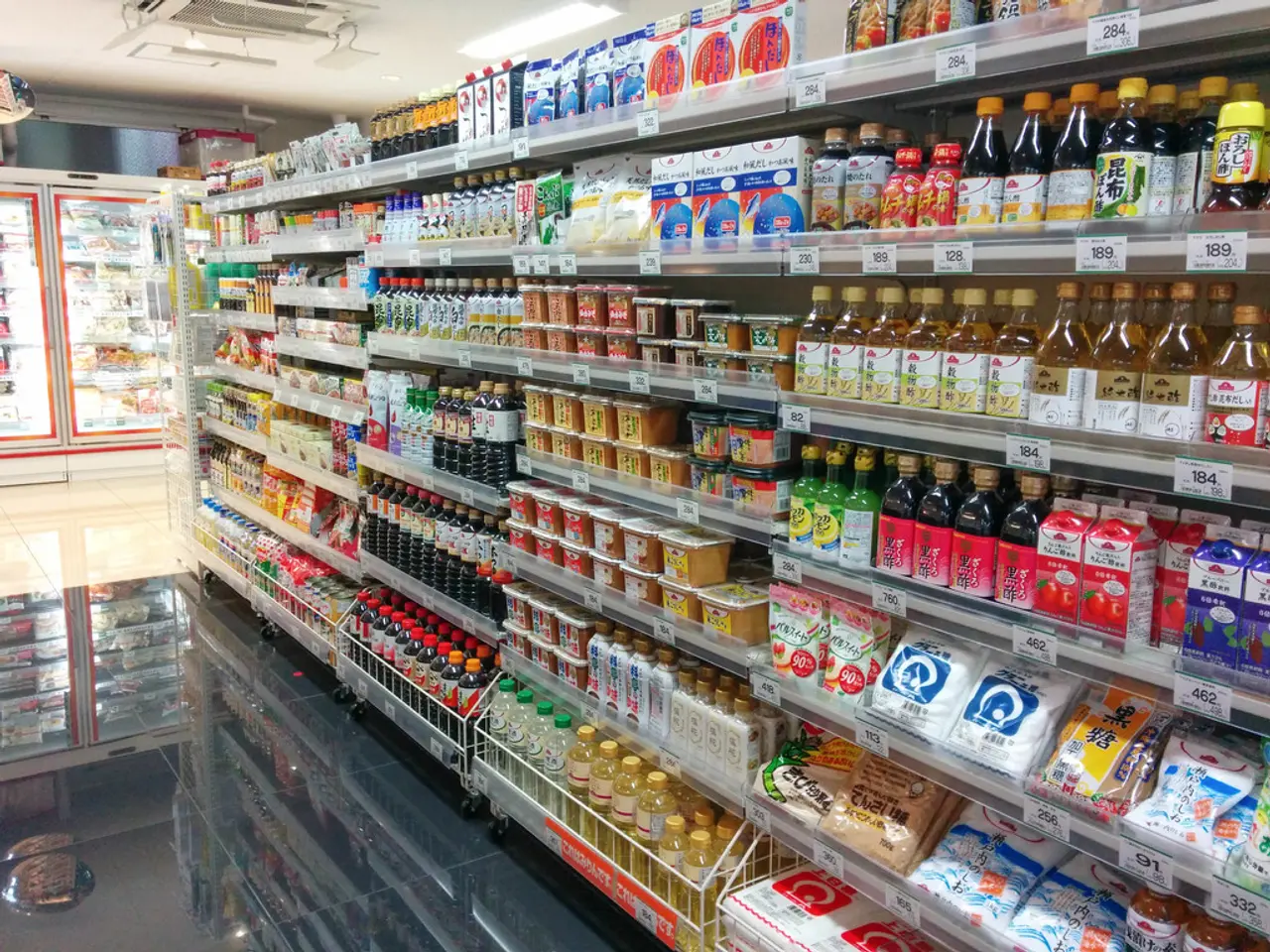Unexpected Expansion of EU Economy in Q2 Unveiled
The global economy, according to the International Monetary Fund's chief economist, exhibits a "tenuous resilience," as the impact of trade policies becomes increasingly evident. One such policy is the tariff regime initiated by the Trump administration, which has caused fluctuations in the growth of various European economies.
The tariffs have put significant pressure on the Eurozone economy. Trump's threat to apply tariffs as high as 30% on EU imports could potentially reduce Eurozone growth by up to 0.3 percentage points annually and push the region toward recession by late 2025. However, a recent trade deal between the US and EU has capped tariffs on most EU exports at 15%, somewhat easing the immediate shock but still raising export costs for European companies and raising concerns about reduced competitiveness.
According to Oxford Economics, sustained 30% US tariffs on EU imports could reduce Eurozone growth forecasts from above 1% to about 0.7-0.8% in 2025 and 2026, stalling growth and risking recession. The US is Europe’s largest export market, taking about 20% (€500 billion) of EU exports, notably in pharmaceuticals and automobiles.
The tariffs and trade uncertainties have also caused market disruptions and losses for European stock indices, with notable declines in sectors including healthcare, reflecting broader economic stress.
While the original tariff threats threatened a severe downturn for the Eurozone, the subsequent trade deal has mitigated but not eliminated the negative economic effects. The Eurozone is facing slower growth, competitive challenges, and market volatility due to the remaining elevated tariff rates and the uncertain trade environment with the US.
The Eurozone's economic growth is not uniform across all its member countries. While some economies, like Spain and France, have seen growth in the second quarter, others, such as Germany, have experienced a contraction.
The global economy remains vulnerable to trade upheaval, as disappointing US jobs data has fueled tariff fears and OPEC+ has agreed to hike oil production amid a threat to Russian supply. Analysts predict a mix of fortunes for the Eurozone due to Trump's tariff regime, with some economies seeing swings in quarterly growth.
Sources:
- Fortune
- World Economic Forum
- Deutsche Welle
- White House
- The trade deal between the US and EU may have eased the immediate shock of the tariff regime, but it still raises concerns about the competitiveness of European businesses in the finance sector, as the tariffs and the uncertain trade environment with the US could lead to increased export costs.
- The ongoing trade uncertainties and the tariff regime have not only affected the Eurozone's general-news headlines but also policymakers, as they grapple with the impact of slower growth, competitive challenges, and market volatility on the business landscape in politics.




